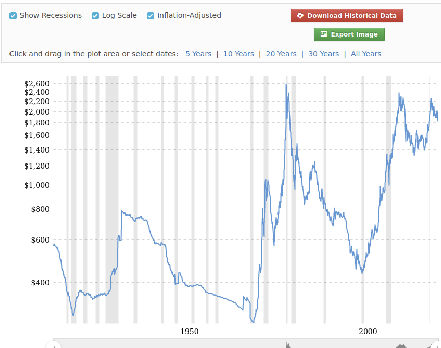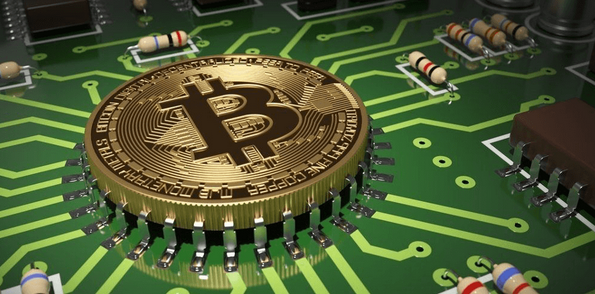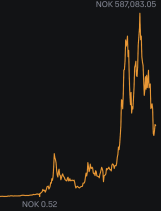Jump to page sections
- How is crypto supposed to work?
- A store of value, like gold?
- FEDcoin / USDv2
- Payment systems
- Brazil has central-bank-backed instant payments
- A brief history and review of gold
- Getting coffee with bitcoin
- Bitcoin's stellar growth and spectacular graph
- Should you invest
- Supply and demand
- "Just wait for the pension funds"
- Stablecoins to the rescue?
- Strength in numbers?
- Crypto can't have it all
- Yell at, correct and educate me
How is crypto supposed to work?

Initial date of publishing: 2022-07-17. Last change: 2024-06-12.
I wrote a new blog article about crypto on 2024-06-08 that you are welcome to check out for some of my updated views on cryptocurrencies. It contrasts the content here somewhat (more optimism and less in favor of CBDC).
This blog post is largely based on a recent BIS report, from the club of central banks, about cryptocurrencies, and my current interpretation of their findings. I read an article about it by Martin Wolf in Financial Times. He reported a rather neutral account, albeit with an eye-catching headline: "Cryptocurrencies are not the new monetary system we need."
A store of value, like gold?
If you see bitcoin - and (certain) other crypto currencies - as stores of value, despite the bubble and crash we have just witnessed (which makes BIS see crypto as speculative and not suitable stores of value), then owning bitcoin (and other crypto currencies) makes sense for you. It is like gold; a store of value. Bitcoin is, in theory, deflation-based and inflation-resistant. In practice, the price is a lottery of supply and demand over periods of time as I have come to understand it.
Bitcoin is potentially a store of value, but first and foremost it's a payment system, at least that's what it was designed to be: digital cash. Now, imagine central banks developing payments systems superior to bitcoin, perhaps technologically and, in particular, pragmatically, and backing them with politicians on colored carpets with seals and crests in the background, speaking fondly of this new payment system. This in contrast to the controversy around crypto - and the legitimacy being in "nerds", and plenty of dubious actors around the globe, validating the transfers, in exchange for rewards. Rewards that become less and less (every four years the amounts BTC miners are rewarded with are cut in half).
FEDcoin / USDv2
Which do you think will win in the race between "FEDcoin"/USDv2 (as issued by the United States Federal Reserve) and Bitcoin (or Dogecoin...)? For the vast majority of people, the foundation of society and their beliefs in societal structures are more strongly rooted in the US dollar than in Bitcoin (at least I think so). I think the central banks' digital currencies will win this race easily.
Payment systems
If the goal is simply to create better payment systems, then the central banks can put some brilliant minds to the task and come up with a solution. It takes money, research, politics, and some international dialogue and diplomacy, but can be done - and the crypto industry is certainly providing the central banks with incentives to do this work.
Prediction (2022-07-17): In less than 10 years there will be instant payments across borders for citizens, government organizations and corporations between most countries, all arranged by the central banks, in a fashion mostly backwards-compatible with our current systems. This system will defeat bitcoin as a payment system for the vast majority of commercial and governmental purposes. Bitcoin may very well remain an outsider and obscurity "forever", in the sense that it at all still is. Crypto has gone quite mainstream.
Brazil has central-bank-backed instant payments
The Brazilian "Pix" system can be mentioned in this regard. It offers 24/7 payments (including on non-business days). The BIS (the club of central banks) says that if they can make international payments this efficient, using CBDC's (Central Bank Digital Currency) it will truly revolutionize payments. The BIS highlights what is called "smart contracts" as a key element. To me it looks more like CBDC's are coming, and that classic, "anarchistic", crypto might be fading after its considerable time in the spotlight. I could be very wrong! For sure there will be spikes and dips in price.
A brief history and review of gold
As a side note, I currently find myself questioning the (too?) high value placed on gold (currently USD 1,707 per gold ounce as of 16 July 2022, evening UTC - down from USD 1,827 on June 26) which by far exceeds its uses in industry and practical applications, but that is another story (without resolution). I totally heart gold jewelry, by the way, especially my wedding/engagement ring. It looks even better when it's worn and torn than new, for some reason. Still shiny/golden. Fascinating material.
In November 1970, I could have gotten myself an ounce of gold for USD 270. I feel similarly about Bitcoin and gold, in failing to see why they have value (rather than simply seeing Bitcoin as digital gold). Gold price is also determined mostly by supply and demand. But as long as people line up to buy, they will both have value.
It has not always been lucrative to hold gold. If you had bought gold in October 1943, you would have had to wait 30 years, until 1973, when an insane surge in prices occurred, to see a positive return on your investment. Same thing if you bought in April 1988, then you would have to wait until 2008 to see a positive return. The 100-year gold chart is telling of gold's (rather recent) history (against the USD).

Source: https://www.macrotrends.net/1333/historical-gold-prices-100-year-chart
Getting coffee with bitcoin

Let's say you are person Jane, a human being with capacities to reason. You visit a café and want to buy a coffee, because you are horribly addicted to it. You decide to buy it with bitcoin, as this is the current preferred method in society (we envision this at the moment). You do not own any bitcoin, so an intermediary is necessary to facilitate the purchase. Even with this intermediary, they are unable to lock a rate between the purchase and then near-immediate sale to buy the coffee, so you actually get withdrawn 21.42 USD in addition to the $2.99 for the coffee, due to Bitcoin's underlying price fluctuations. (But don't worry, the next time you buy, you gain 34.38 USD!). This can probably be reasonably remediated by some form of technological layer, but it would then likely be piggy-backing on the stability of the USD or another central bank FIAT currency to "lock" the price. This, as I see it, is one aspect of being what the BIS calls "inherently flawed", about crypto. The volatility makes practical applications difficult. A taxable event is triggered, with reporting duties.
If you are Joe, instead of Jane, you actually hold Bitcoin, and pay with the current rate for bitcoin from your holdings. You bought it when Bitcoin was worth USD 40,000 per coin. Currently, the price is USD 20,000 - give or take. The USD 10,000 that you invested in Bitcoin is now worth USD 5,000. You expediently and conveniently transfer the amount of BTC (satoshi) required to make the purchase. And you get your $2.99 coffee against the current rate of bitcoin, which was determined to be USD 20,563. A taxable event is triggered, with reporting duties.
If you are John, instead of Joe or Jane, you bought bitcoin when it was worth USD 10 and the Bitcoin rate is now up a lot for you. Your invested USD 1,000 for 100 BTC is now worth USD 2,000,000. You buy the $2.99 coffee (heck, you can afford it). A taxable event is triggered, with reporting duties.
Bitcoin's stellar growth and spectacular graph
If you are like me, you sometimes lament over not putting even $100 into Bitcoin when the price was pennies. Here's a picture of Bitcoin's wild, stellar and spectacular growth. From less than 10 cents to about 60,000 dollars at the previous peak (apologies for NOK as currency, my app localizes; see the Coinbase link below).

Source: www.coinbase.com/price/bitcoin.
Should you invest
The question of investing boils down to whether or not you think bitcoin and other crypto currencies function as "stores of value", like gold. If they are, in your estimation, then you can proceed to gamble on the development short- or long-term. Good luck. Dollar cost averaging should probably be recommended for long-term investing.
It might surprise you as a reader to hear that I myself currently purchase crypto with DCA/dollar cost averaging. In case I and the BIS are flat out wrong about this, I want to hedge my bets and keep a small, but present, footprint in this realm.
Supply and demand
What sets the price of a coin/token/currency? Supply and demand. Why should bitcoin go up? The rhetoric used by significant actors in the crypto investment world, such as Coinbase, is that crypto is inflation-resistant stores of value. In reality, the price is set almost purely by supply/demand mechanisms. Much like in a pyramid game / ponzi scheme, fresh money is needed to sustain prices. There is nobody who can tell me a good reason why BTC price should go up, beyond speculation in increased demand.
"Just wait for the pension funds"
Some crypto believers peg their hopes on thinking large conventional financial entities, such as pension funds and hedge funds (some hedge funds are invested), will take a part of the crypto cake and that this will drive prices up significantly. A question I have, if that turns out to happen on a large scale, is whether prices will then just fall once these big players are in - and everyone will collectively lose in the longer run, if they "HODL" (hold).
Tesla - among others - including some hedge funds - are in - and I have read volatility was lower during the second extreme spike than the first, but is it enough to keep prices high over time? Can bitcoin function as a store of value? I think Tesla has large uncapitalized losses. Why should the price go up unless big fish buy a lot? And at least as interesting is: How do you prevent prices from plummeting when a big fish ("whale") wants out?
A famous Norwegian billionaire and industry giant, Kjell Inge Røkke (wikipedia link), made a bet with bitcoin, after conferring with the bitcoin elite, and put 500 million kroner (about 50 million dollars with today's exhange rates - with an exceptionally strong dollar) into bitcoin 11 days away from the first ATH peak. If he did not get out close to the second extreme peak, he is currently sitting on a considerable loss.
Stablecoins to the rescue?
The BIS concludes that the prevalence of stablecoins is symptomatic of crypto's lack of a "nominal anchor". Incidentally, I notice 3 of the top 6 coins on CoinMarketCap.com are stablecoins. There is a search for stability and predictability beyond what the volatile instruments/cryptocurrencies can offer. The fluctuations are so wild that nobody can keep track without some FIAT stability. In the search of stability, crypto people turn to good old USD, the current world reserve currency, and emulate it via stablecoins that at any given moment try to have a value of exactly USD 1.00.
In my example with coffee, the price isn't listed as 0.00014065 BTC, it's listed in USD (2.99). Will it always have to be that way? It seems doubtful at this point whether crypto will ever reach the level of stability necessary to be a stable and reliable mainstream financial system. Again, I could be very wrong!
Strength in numbers?
There are now over 10 thousand cryptocurrencies. But this proliferation is not necessarily a healthy sign. The tokens/coins are fragmented, largely incompatible, and difficult to work with. This fragmentation is not that which the world needs to solve its payment needs. So say the gentlemen and women of BIS. Fragmentation is highlighted as a major flaw.
As more people use a cryptocurrency, the greater the congestion becomes and the more costly the transactions. This is because self-interested validators are responsible for recording transactions on the blockchain. Martin Wolf in FT says that the way to reward validators sufficiently to sustain the system of decentralised concensus, is to limit the capacity of the blockchain and to keep fees high. (I would like to get further information on this). I will quote the BIS: "So, rather than the familiar monetary narrative of 'the more the merrier', crypto displays the property of 'the more the sorrier'."
Crypto can't have it all
BIS says that you cannot have all three of security, decentralisation and scalability. Cryptocurrencies sacrifice scalability. Crypto works around this with "bridges" across blockchains, that are vulnerable to hacks. I will quote BIS again: "Fundamentally, crypto and stablecoins lead to a fragmented and fragile monetary system. Importantly, these flaws derive from the underlying economics of incentives, not from technological contraints. And, no less significantly, these flaws would persist even if regulation and oversight were to address the financial instability problems and risk of loss implicit in crypto."
Yell at, correct and educate me
I think half of the readers of this article will be agitated at this point, and full of desire to correct, comment, amend, improve or change what I have written. If this is you, you can write me at svendsentech@gmail.com and yell at me. I will probably update the article if I receive constructive feedback. 😙
Finance Finans Bitcoin Crypto Crypto Currency CryptographyBlog articles in alphabetical order
A
- A Look at the KLP AksjeNorden Index Mutual Fund
- A primitive hex version of the seq gnu utility, written in perl
- Accessing the Bing Search API v5 using PowerShell
- Accessing the Google Custom Search API using PowerShell
- Active directory password expiration notification
- Aksje-, fonds- og ETF-utbytterapportgenerator for Nordnet-transaksjonslogg
- Ascii art characters powershell script
- Automatically delete old IIS logs with PowerShell
C
- Calculate and enumerate subnets with PSipcalc
- Calculate the trend for financial products based on close rates
- Check for open TCP ports using PowerShell
- Check if an AD user exists with Get-ADUser
- Check when servers were last patched with Windows Update via COM or WSUS
- Compiling or packaging an executable from perl code on windows
- Convert between Windows and Unix epoch with Python and Perl
- Convert file encoding using linux and iconv
- Convert from most encodings to utf8 with powershell
- ConvertTo-Json for PowerShell version 2
- Create cryptographically secure and pseudorandom data with PowerShell
- Crypto is here - and it is not going away
- Crypto logo analysis ftw
D
G
- Get rid of Psychology in the Stock Markets
- Get Folder Size with PowerShell, Blazingly Fast
- Get Linux disk space report in PowerShell
- Get-Weather cmdlet for PowerShell, using the OpenWeatherMap API
- Get-wmiobject wrapper
- Getting computer information using powershell
- Getting computer models in a domain using Powershell
- Getting computer names from AD using Powershell
- Getting usernames from active directory with powershell
- Gnu seq on steroids with hex support and descending ranges
- Gullpriser hos Gullbanken mot spotprisen til gull
H
- Have PowerShell trigger an action when CPU or memory usage reaches certain values
- Historical view of the SnP 500 Index since 1927, when corona is rampant in mid-March 2020
- How Many Bitcoins (BTC) Are Lost
- How many people own 1 full BTC
- How to check perl module version
- How to list all AD computer object properties
- Hva det innebærer at særkravet for lån til sekundærbolig bortfaller
I
L
M
P
- Parse openssl certificate date output into .NET DateTime objects
- Parse PsLoggedOn.exe Output with PowerShell
- Parse schtasks.exe Output with PowerShell
- Perl on windows
- Port scan subnets with PSnmap for PowerShell
- PowerShell Relative Strength Index (RSI) Calculator
- PowerShell .NET regex to validate IPv6 address (RFC-compliant)
- PowerShell benchmarking module built around Measure-Command
- Powershell change the wmi timeout value
- PowerShell check if file exists
- Powershell check if folder exists
- PowerShell Cmdlet for Splitting an Array
- PowerShell Executables File System Locations
- PowerShell foreach loops and ForEach-Object
- PowerShell Get-MountPointData Cmdlet
- PowerShell Java Auto-Update Script
- Powershell multi-line comments
- Powershell prompt for password convert securestring to plain text
- Powershell psexec wrapper
- PowerShell regex to accurately match IPv4 address (0-255 only)
- Powershell regular expressions
- Powershell split operator
- Powershell vs perl at text processing
- PS2CMD - embed PowerShell code in a batch file
R
- Recursively Remove Empty Folders, using PowerShell
- Remote control mom via PowerShell and TeamViewer
- Remove empty elements from an array in PowerShell
- Remove first or last n characters from a string in PowerShell
- Rename unix utility - windows port
- Renaming files using PowerShell
- Running perl one-liners and scripts from powershell
S
- Sammenlign gullpriser og sølvpriser hos norske forhandlere av edelmetall
- Self-contained batch file with perl code
- Silver - The Underrated Investment
- Simple Morningstar Fund Report Script
- Sølv - den undervurderte investeringen
- Sort a list of computers by domain first and then name, using PowerShell
- Sort strings with numbers more humanely in PowerShell
- Sorting in ascending and descending order simultaneously in PowerShell
- Spar en slant med en optimalisert kredittkortportefølje
- Spre finansiell risiko på en skattesmart måte med flere Aksjesparekontoer
- SSH from PowerShell using the SSH.NET library
- SSH-Sessions Add-on with SCP SFTP Support
- Static Mutual Fund Portfolio the Last 2 Years Up 43 Percent
- STOXR - Currency Conversion Software - Open Exchange Rates API
